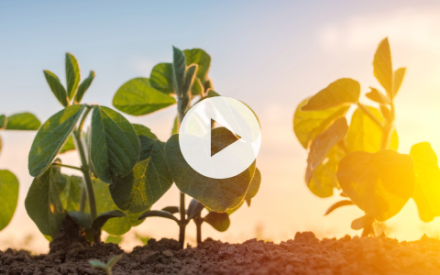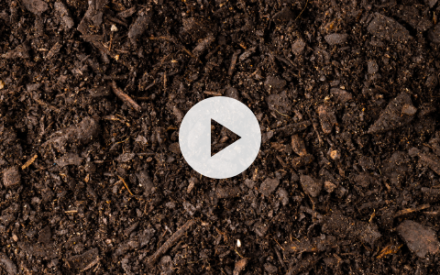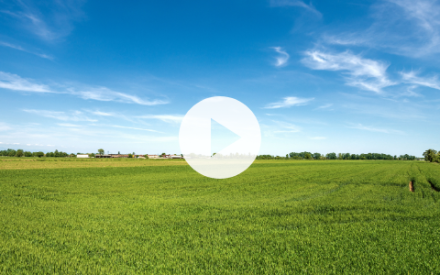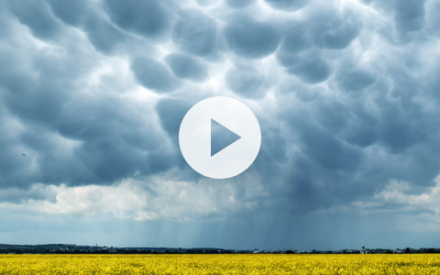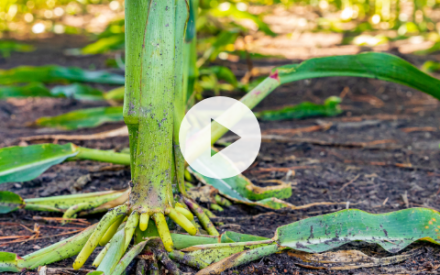Badger Crop Connect

About Badger Crop Connect
The Badger Crop Connect series provides agronomists, crop consultants, and farmers with timely crop updates for Wisconsin. CEUs are available by topic for each presentation.
Recordings for on-demand viewing are available on the Divison of Extension’s YouTube channel or by expanding the Recordings tab below. To receive emails about upcoming webinar topics, recorded video availability, and other training opportunities and resources, sign up below.
Webinars are held at 12:30 p.m. on the second and fourth Thursdays each month from April to October.
Our Next Webinar
August 14: Focus on Corn Silage
Exploring the Agronomic Fit of Short Corn as a BMR Alternative with Harkirat Kaur
Dr. Harkirat Kaur focuses on the yield potential and forage quality of short corn and its potential to fit into forage programs as BMR corn is phased out.
Check Out the New Corn Silage Moisture Tool with Liz Gartman
Liz Gartman gives an introduction to the new Corn Silage Dry Down Monitoring tool and how to get involved with the process.
Practices to Optimize the Nutritive Value of Corn Silage with Luiz Ferraretto
Dr. Luiz Ferraretto’s presentation discusses harvesting practices and their implications on nutritive value of corn silage.
2025 Topics and Recordings
July 24: Mid-Season Weather, On-Farm Research, and Forage Updates
Growing Season Weather Recap and Fall Weather Outlook with Josh Bendorf
Josh Bendorf will present on ag weather notables from the growing season thus far and summarize the current outlooks for the end of summer into fall.
NOPP Annual Report Highlights with Lindsey Rushford
Lindsey will highlight key points from the 2024 Nitrogen Optimization Pilot Program Report and provide details of the upcoming NOPP funding cycle.
Forage Planning for Mid- and Late-Summer with Kevin Jarek
Kevin will share information for mid and late summer forage management. Paying attention to details now can help maximize your forage yield and quality not only this year, but next year as well.
July 10: Focus on Small Grains
Handling, Storage, and Nutrient Removal: Integrated Approaches to Small Grain Management with Dan H. Smith
Dive into storing small grains, straw nutrient removal, and handling small grains for seed.
Swheat: Finding the Right Sulfur Rate on Wheat with Scott Reuss
Scott will share details on sulfur management in winter wheat. He will share research data conducted in northeast Wisconsin aimed at helping farms achieve optimal return to sulfur inputs. Learn when winter wheat responds to sulfur applications and when it does not.
Malting Barley Update with Jerry Clark
Jerry provides an update on malting barley research conducted in northwestern Wisconsin. The presentation covers variety trials, nitrogen and fungicide management, and quality testing for malting barley to meet craft brewing standards.
Camelina On-Farm Research Update with Sam Bibby
Hear an update on what the UW Crops and Soils team has learned and what we are planning to do with this on-farm research project moving forward.
June 26: Focus on Phosphorus
The Zone of Interaction: Exploring phosphorus stratification with Laura Paletta and Kelsey Hyland
This presentation will explore questions about phosphorus movement in soil health systems and how P stratification impacts phosphorus losses and water quality risks. We will present aggregated data from a statewide survey exploring phosphorus stratification.
What you need to know about The WI Phosphorus Index with Hava Blair
The Wisconsin P Index (P Index) is a planning and assessment tool for managing runoff phosphorus losses from cropland. It uses information that is readily available to farmers and agricultural consultants to evaluate the potential for phosphorus in runoff from a specific field entering a nearby stream or lake. Hava Blair, Ph.D. will summarize the main components of the P Index calculation and describe recent updates to the P Index and the research behind it.
June 12: Early-Season Soybean and Small Grain Management
Early In-Season Decision Cues in Soybeans and Small Grains with Shawn Conley
Dr. Shawn Conley will talk about the most recent impacts on the 2025 growth development and health of Wisconsin’s soybean crop and notable events affecting our small grains.
Early Season Disease Update and Management Considerations with Damon Smith
Dr. Damon Smith will talk about what he is seeing in terms of diseases in field crops. He will focus on winter wheat disease and management pertinent to the time of the season.
May 22: Spring Weeds Special
2025 Corn and Soybean Weed Management: Field Observations and Research Updates with Rodrigo Werle
In this timely session, Dr. Rodrigo Werle will share his early-season field observations, practical weed management recommendations, and the latest research findings from the WiscWeeds lab.
Organic Weed Management: Spring Considerations with Erin Silva
In this talk, Dr. Erin Silva will discuss spring weed management considerations for organic grain systems, as well as what organic grain farmers can do in designing their rotations and cover crop strategies to allow for more effective weed management.
May 8: Spring Forage Special
Pricing Standing Forage with Kevin Jarek
Every growing season across the state of Wisconsin, farmers purchase standing alfalfa from other farmers to bolster their forage/feed supplies. Ideally, all of this purchased alfalfa would be weighed as it is harvested to ensure both parties are treated fairly in any formal agreement, however, not all farms have access to drive-over scales. Kevin Jarek, regional crops and soils educator will share how both parties can determine a fair value for standing alfalfa whether it is a single cutting or for the entire season.
Alfalfa Pest Updates with Emily Bick
In this talk, we will explore the latest updates on alfalfa pests, focusing on their identification, impact, and management strategies. Special attention will be given to the alfalfa weevil, whose larvae cause significant damage by defoliating new growth, thereby affecting crop yield and quality.
Spring Grazing Checklist with Jason Cavadini
A long grazing season with pastures that remain productive deep into fall requires a few critical springtime measures. This session will cover when to begin grazing, how to take a forage inventory, and how to manage pastures for optimal forage intake.
April 24: Spring Manure Special
Precision Manure Application Using NIR Sensors with Becky Larson
Near-Infrared (NIR) sensors for precision manure application enable real-time nutrient analysis and variable-rate spreading with the goal of optimizing crop production and reducing environmental impacts and operational burdens. Dr. Rebecca Larson’s presentation covers the technology’s sensor performance in comparison to laboratory manure analysis as well as field impacts when integrated into manure application systems when compared to traditional fixed rate application systems. This includes data from recent field trials on the impact to crop productivity in addition to the other system benefits and challenges.
Manure N Credits with Natasha Rayne
Dr. Natasha Rayne explores how to calculate and apply manure nitrogen credits to meet crop need while reducing the need for commercial fertilizers. Her presentation covers the factors that influence nitrogen availability from manure and explore possible gaps and opportunities to improve nitrogen availability estimates from manure.
Trends in WI Manure Micronutrients with Chris Clark
Is Wisconsin liquid dairy manure meeting row crop micronutrient needs? Chris Clark shares 29 Years of Manure: Micronutrient Trends and Insights.
April 10: 2025 Outlooks and Updates
2025 Weather Outlook with Steve Vavrus
Steve Vavrus provides a retrospective description of past weather conditions leading up to the present and a weather outlook for the upcoming growing season.
2025 Market Outlook and Update with Paul Mitchell
Dr. Paul Mitchell gives a brief update on the farm economy, including an update on expected margins for corn and soybeans and recent data on the financial status of farms, as well as a quick overview of management options farmers can still implement for the 2025 crop.
Soil Conditions Status and Spring Soil Management with Francisco Arriaga
Dr. Francisco Arriaga provides a status of current soil conditions in the state and management decisions to effectively navigate soil condition challenges.
More topics to be announced. Sign up for our email list to receive updates directly to your inbox!

